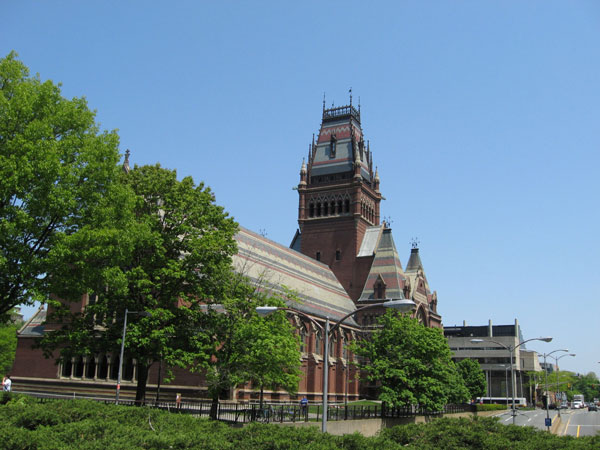Harvard defends academic freedom in lawsuit over federal funding and visa program

[Harvard University. Photo credit to Pxhere]
Harvard University filed a lawsuit on April 21 against the Trump administration, challenging efforts to freeze $2.2 billion in research funding and revoke the university’s ability to enroll international students.
The lawsuit centers on actions by the Department of Homeland Security (DHS), which Harvard claims violate the constitutional protections of academic freedom and institutional independence by pressuring the university over political disagreements and violating institutional independence.
Harvard argues that the federal government’s demands are based on wanting the university to conform to specific political viewpoints.
On April 11, the Trump administration sent a letter to Harvard President Alan Garber requesting reforms to admissions and hiring policies, along with a restructuring of the university’s leadership.
The lawsuit further highlights the political battle between one of the country’s most prominent academic institutions and President Donald Trump, who has repeatedly accused influential universities of fostering antisemitism and tolerating disruptive protests on their campuses.
University officials stated that the threats to funding and student visas followed the administration’s demand for governance changes and public accusations that Harvard has enabled antisemitic activity on campus.
The DHS moved to disqualify Harvard from the Student and Exchange Visitor Program (SEVP), which would block the university from enrolling international students under non-immigrant visas.
DHS Secretary Kristi Noem sent a letter on April 16 to the Harvard university requesting the personal information of all international students on such visas, a request Harvard describes as unlawful and invasive.
Harvard’s lawsuit contends that DHS overstepped its authority by seeking to take away SEVP certification, threatening thousands of students, disrupting global academic partnerships, and going against the university’s internal policies.
A federal judge has since granted a temporary restraining order halting the DHS actions while the case proceeds, according to Harvard spokesperson Jason Newton.
At the same time, the Department of Education launched a civil rights investigation to determine whether Harvard violated federal laws by failing to adequately protect Jewish students.
A notice of this inquiry was published on the department’s website.
University officials emphasized that all allegations of harassment and discrimination are taken seriously and addressed through existing university procedures.
They also reaffirmed that student speech is protected under university policies and applicable law.
In an April 22 message to the Harvard community, President Garber declared the university’s intention to defend its mission in court: “No government—regardless of which party is in power—should dictate what private universities can teach, whom they can admit and hire, and which areas of study and inquiry they can pursue.”
In response to increasing tensions on campus, Harvard announced a new institutional neutrality policy on May 28 of last year.
The policy states that the university will refrain from taking official stances on political or social issues unless they directly impact its academic mission.
Newton noted that the policy aims to ensure Harvard remains a space for open debate rather than a platform for institutional advocacy.
However, it has also raised criticism from those concerned it may limit the university’s ability to address moral or international issues.
During Harvard’s commencement ceremony on May 23, President Garber acknowledged the ongoing crisis confronting the university, though he did not mention the lawsuit directly.
“We are navigating a difficult moment. But we will not be intimidated into silence,” Garber said during his address.
Legal experts said the outcome of the case could influence how federal agencies interact with academic institutions moving forward.
According to the American Council on Education, the case is being closely watched by higher education leaders across the country.
For international students and scholars, the uncertainty has led to confusion regarding their visa status and future academic plans, student affairs officials reported.
In a public statement, Harvard affirmed its commitment to supporting affected students and maintaining its international academic partnerships.

- Mina Imai / Grade 9 Session 10
- Sunny Hills High School

![THE HERALD STUDENT REPORTERS [US]](/assets/images/logo_student_us.png)
![THE HERALD STUDENT REPORTERS [Canada]](/assets/images/logo_student_ca.png)
